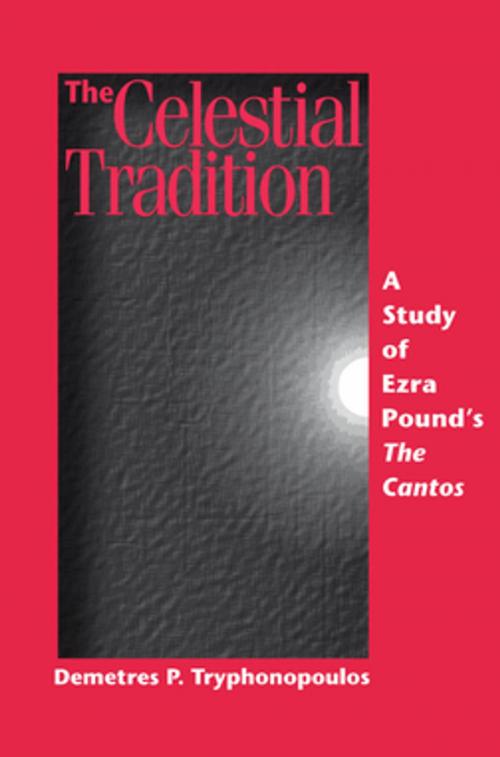The Celestial Tradition
A Study of Ezra Pound’s The Cantos
Fiction & Literature, Literary Theory & Criticism, Poetry History & Criticism, American, Nonfiction, Religion & Spirituality, Bible & Bible Studies| Author: | Demetres P. Tryphonopoulos | ISBN: | 9781554588053 |
| Publisher: | Wilfrid Laurier University Press | Publication: | October 30, 2010 |
| Imprint: | Wilfrid Laurier University Press | Language: | English |
| Author: | Demetres P. Tryphonopoulos |
| ISBN: | 9781554588053 |
| Publisher: | Wilfrid Laurier University Press |
| Publication: | October 30, 2010 |
| Imprint: | Wilfrid Laurier University Press |
| Language: | English |
Despite the painstaking work of Pound scholars, the mythos of The Cantos has yet to be properly understood — primarily because until now its occult sources have not been examined sufficiently. Drawing upon archival as well as recently published material, this study traces Pound’s intimate engagement with specific occultists (W.B. Yeats, Allen Upward, Alfred Orage, and G.R.S. Mead) and their ideas. The author argues that speculative occultism was a major factor in the evolution of Pound’s extraordinary aesthetic and religious sensibility, much noticed in Pound criticism.
The discussion falls into two sections. The first section details Pound’s interest in particular occult movements. It describes the tradition of Hellenistic occultism from Eleusis to the present, and establishes that Pound’s contact with the occult began at least as early as his undergraduate years and that he came to London already primed on the occult. Many of his London acquaintances were unquestionably occultists.
The second section outlines a tripartite schema for The Cantos (katabasis/dromena/epopteia) which, in turn, is applied to the poem. It is argued here that The Cantos is structured on the model of a initiation rather than a journey, and that the poem does not so much describe an initiation rite as enact one for the reader.
In exploring and attempting to understand Pounds’ occultism and its implications to his [Pounds’] oeuvre, Tryphonopoulos sheds new light upon one of the great works of modern Western literature.
Despite the painstaking work of Pound scholars, the mythos of The Cantos has yet to be properly understood — primarily because until now its occult sources have not been examined sufficiently. Drawing upon archival as well as recently published material, this study traces Pound’s intimate engagement with specific occultists (W.B. Yeats, Allen Upward, Alfred Orage, and G.R.S. Mead) and their ideas. The author argues that speculative occultism was a major factor in the evolution of Pound’s extraordinary aesthetic and religious sensibility, much noticed in Pound criticism.
The discussion falls into two sections. The first section details Pound’s interest in particular occult movements. It describes the tradition of Hellenistic occultism from Eleusis to the present, and establishes that Pound’s contact with the occult began at least as early as his undergraduate years and that he came to London already primed on the occult. Many of his London acquaintances were unquestionably occultists.
The second section outlines a tripartite schema for The Cantos (katabasis/dromena/epopteia) which, in turn, is applied to the poem. It is argued here that The Cantos is structured on the model of a initiation rather than a journey, and that the poem does not so much describe an initiation rite as enact one for the reader.
In exploring and attempting to understand Pounds’ occultism and its implications to his [Pounds’] oeuvre, Tryphonopoulos sheds new light upon one of the great works of modern Western literature.















